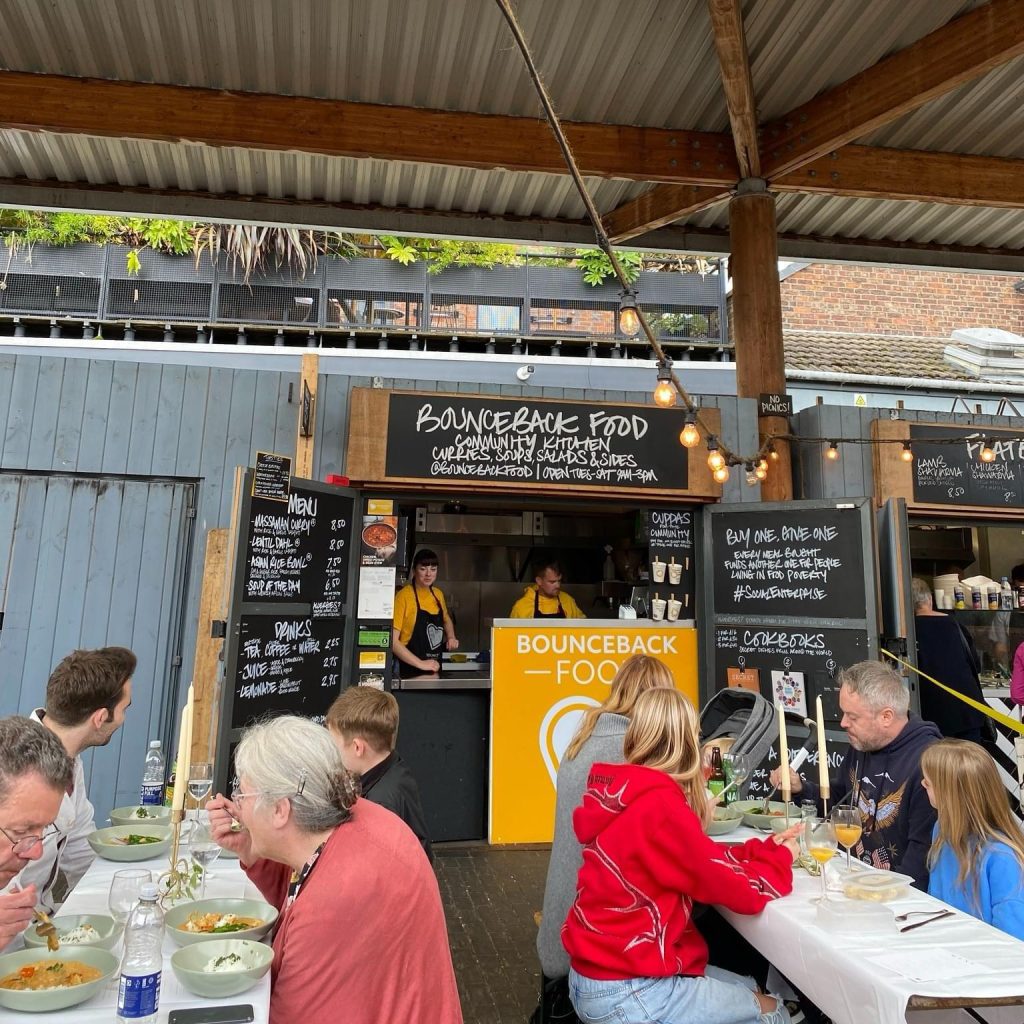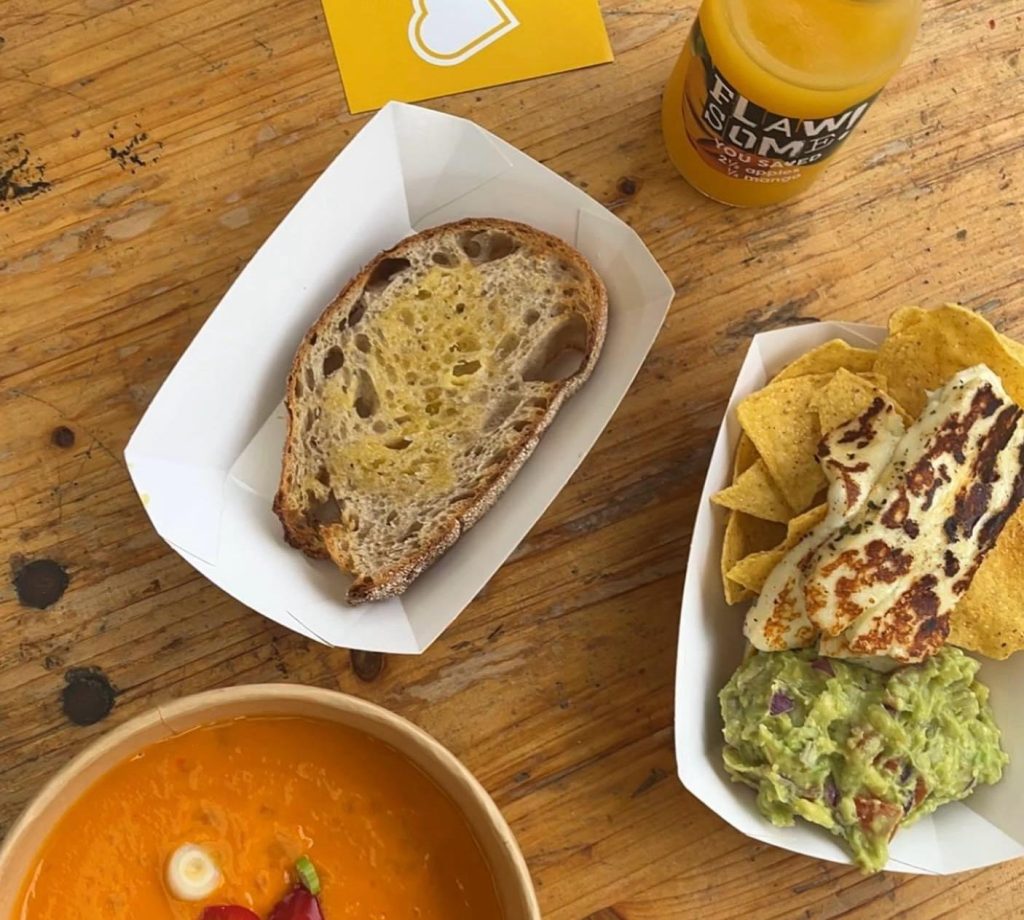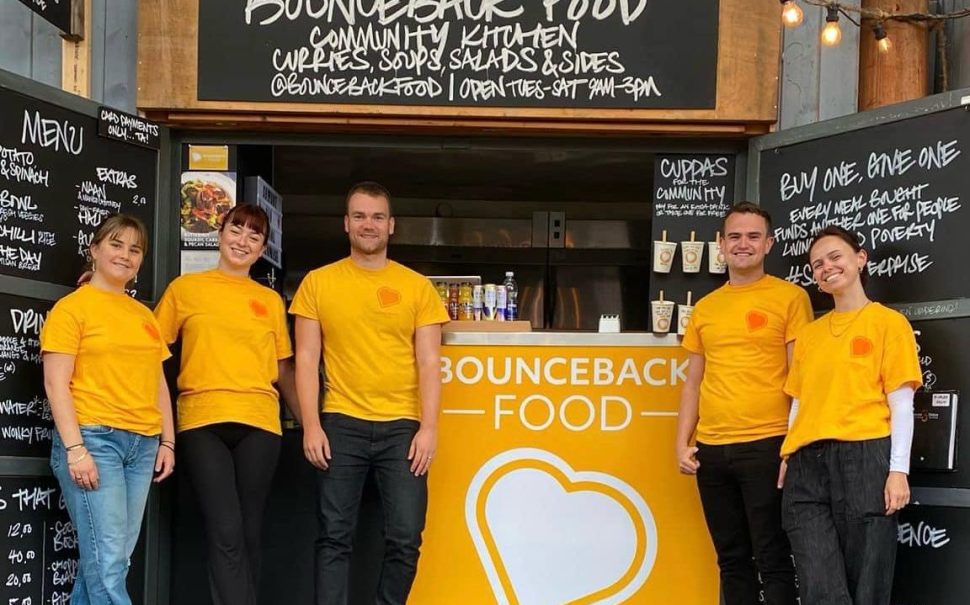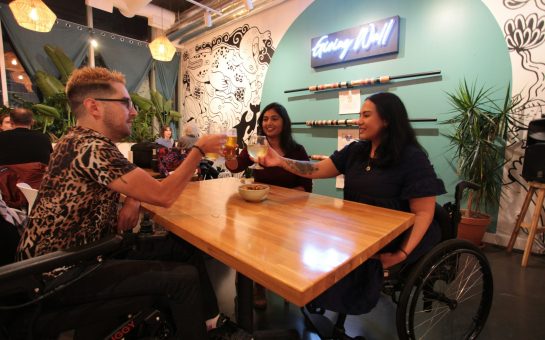We’re always told ‘You are what you eat.’
But what about people who struggle to get enough food to eat – let alone healthy food?
In Greater Manchester, an estimated 620,000 people, including over 200,000 children, are living in food poverty, struggling to put food on the table.
Bounceback Food, an Altrincham-based social enterprise founded in 2014, provide a holistic approach to tackling food poverty through meal distributions, catering, community projects and education.
Josie Moir, the marketing and events co-ordinator at Bounceback Food, said: “The range of things we do is vital to look at the root causes of food poverty and provide people with broader support than food banks, which are sadly necessary, but can only do so much.”
Initially, Bounceback Food started as a market stall in Altrincham using a ‘buy one, get one,’ approach – people would buy an item of food and then donate one to a local food bank.
It has since expanded to other areas in Greater Manchester, as well as around the UK, and collaborates with various charities and organisations to combat food poverty.
Josie said: “From providing basic items to food banks, the ethos of Bounceback Food has gone further to try and tackle food poverty on multiple fronts and from a broader, more long-term perspective. “
Food poverty is not a one-off emergency – it is a long-term issue.
While food poverty can be triggered by financial or personal crises, not being able to afford food or have access to a healthy, nutritious diet is a sustained issue for many.
Education is vital to overcome this.
Bounceback Food opened its first Community Kitchen in Altrincham in July last year.
It offers a ‘buy one, give one’ menu of healthy dishes, providing its partner food banks and sheltered accommodation sites with nutritious meals throughout the week, as well as free hot drinks to those who need it.
Frequent Community cooking classes use surplus food from supermarkets to educate people and reduce food waste.
Chefs run cookery workshops using whichever surplus ingredients are given to them to show people the importance of being resourceful.
Josie said: “It is free for the community to show people what ingredients they can use up.
“Most people who receive items from food banks do not have much choice of what they receive. This has made a big impact on their lives.”
The centre also lives up to its name, by providing a community to many.
Josie said: “We tackle social isolation at the same time.
“We see a lot of regulars – including people who are out of work, so this is great for them socially.”

Esther King is a regular visitor at Bounceback Food’s centre in Altrincham, and her daughter used to work at a market stall there.
She frequently buys meals and coffee from the centre while supporting the organisation in any way she can.
A common misconception is that everyone living in Altrincham is wealthy and has easy access to food.
In reality, this is not the case, revealed Esther.
She said: “The gap from the super-wealthy to the poverty-stricken people is not seen. The charity is really hitting those areas.
“It never makes people feel like they are begging or that they are not worthy, like a lot of places which need people to fit to a certain criterion to claim the services.”
Esther places great importance on supporting her local community.
Her household is fortunate enough to be able to spend a little bit extra to buy food products from local markets instead of the supermarket.
“It is so important that we share, and if we have a bit more than others, give it to them,” she added.
But she acknowledges not everyone has the means to do this, which is why she feels it even more important to do so herself.
“I don’t think people would be able to survive without Bounceback Food,” Esther added.
“That’s why it’s so important to me to support them in any way I possibly can – I think it’s vital.”

The cost-of-living crisis makes a healthy, nutritious diet seem out of reach for many.
It is affecting everyone – even those who used to have easy access to food are now struggling to keep up with the ever-increasing costs.
More than two-thirds of people said they viewed themselves as healthy eaters, but 28% said their diets were currently less nutritious because it is too expensive, according to the BBC Good Food Nation survey.
So, how can we eat healthily on a budget?
Anna Whyte, a nutritional therapist and health coach, offers realistic guidance to support people’s diet and lifestyle, and recently attended one of Bounceback Food’s event to offer people advice.
Anna said: “Our socioeconomic status and the ongoing increase in food costs without a doubt impacts our ability to eat nutrient-dense meals regularly.
“Nutrition education and an understanding of how to cook healthy meals is also a large factor in this.”
She encourages people to keep meals simple and focus on what they do have access to.
“Trying not to put too much pressure on ourselves or compare ourselves to others is also important – we all do our best with the resources we have,” she added.
“Making the most of frozen fruits and vegetables, eating seasonal foods which is more cost-effective, and buying dried beans, pulses and grains in bulk to keep the cost down and get some quality nutrition in.”

The food we eat affects not just our physical health – but our mental health.
Growing research suggests that access to nutritious foods plays a large part in our mood and mental well-being, revealed Anna.
“Consuming a diet rich in processed, fast food and low in whole foods can increase our risk of stress and anxiety,” Anna added.
“I recommend promoting a balanced, non-restrictive approach, which focuses on prioritising sleep, managing stress and building positive relationships with food.”
Bounceback food hopes to keep expanding, and even one day reach a national scale, to help tackle food poverty once and for all.
Josie said: “The more we can spread the word, the more people understand all the aspects of what we do and the more people can get involved and help bring our project to life.”




